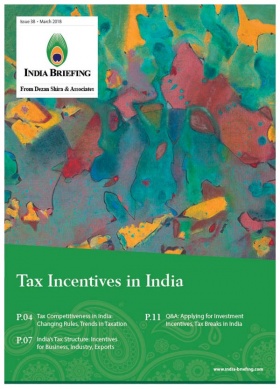Startups in India: New Business Relaxations, Eligibility Criteria Announced
Startups in India will now benefit from more relaxations under the Companies Act, 2013 – a move that will reduce compliance requirements and allow for operational flexibility. These are in addition to exemptions announced in June 2015.
In its notification dated June 13, 2017, the Ministry of Corporate Affairs (MCA) outlined specific provisions in the Companies Act that will be amended as applicable for private companies, including startups. However, only those firms who have not defaulted in their filing of tax returns and have complied with financial reporting requirements, will benefit.
The MCA also announced provisions that support the ‘Fast Track Corporate Insolvency Process’ set out in the Insolvency and Bankruptcy Code, 2016.
New definition of ‘startups’
The exemptions and relaxations announced by the MCA are available to only those private firms who are recognized as ‘startups’ by the Department of Industrial Promotion and Policy in the Ministry of Commerce and Industry.
As per their notification dated May 23, 2017: an entity is considered to be a startup if it is not more than seven years old from the date of its incorporation/registration. This eligibility period is extended to ten years only for the biotechnology sector. The entity must also demonstrate that it is working towards innovation, development, or improvement of products or processes or services. It must also possess a scalable business model with the ability to create jobs or wealth.
The latest official notification, dated April 11, 2018, explaining the definition and eligibility criteria for startups applying for regulatory and tax benefits may be accessed here.
The qualified annual turnover (as defined in the Companies Act) remains the same as under the DIPP’s 2016 notification: not exceeding US$3.86 million (Rs 250 million) in any previous financial year. (US$1 = Rs 64.74)
New relaxations for startups and private companies
The following provisions have been amended in terms of their application for startups and private companies in India under the Companies Act, 2013:
Cash flow statement: Startups will no longer be required to include their cash flow statements as part of their financial statements.
Quarterly board meetings: Startups will now be exempt from holding quarterly board meetings every year. The MCA now allows startups to hold two board meetings in a calendar year, that is, once in six months. The gap between two consecutive board meetings must be at least 90 days.
Interested directors: In this provision, the MCA has permitted interested directors to be counted as quorum for board meetings. Such persons must disclose their interest to the board in advance.
Corporate insolvency process: Sections 55 to 58 of the Bankruptcy Code that deal with the fast tracking of corporate insolvency have come into force from June 14, 2017. Pursuant to this, startups who are legally identified as corporate debtors can avail of the fast track corporate insolvency process.
The fast track period is 90 days from the commencement of the insolvency process, as opposed to 180 days.
Acceptance of deposits: The Companies Act restricts the acceptance of deposits from the public. While private companies were exempted, subject to certain conditions, the latest notification extends it further.
Private companies can now accept deposits if it fulfills the following conditions:
- The amount accepted from members does not exceed 100 percent of its aggregate of paid-up capital, free reserves, and securities premium account; or
- If it is a startup, for five years from the date of its incorporation; or
- If the private company is not an associate or subsidiary of another company;
- If its borrowings from banks, financial institutions, or body corporate is less than twice of its paid-up capital or US$7.72 million (Rs 500 million), whichever is lower; and it has not defaulted in the repayment of such borrowings.
Such private companies accepting deposits from its members will file the details with the Registrar of Companies (RoC) as required by law.
Annual return: The annual return will only calculate the aggregate of remuneration drawn by directors (as opposed to including the aggregate of remuneration of key managerial personnel as well).
Further, in case of startups, the annual return can be signed by the director of the company – in case the firm does not have a company secretary.
Auditor report: Auditors have a right to inspect the books and records of the company, and prepare their report with required inclusions as defined by the Companies Act. This auditor’s report is then submitted before the members at the annual general meeting (AGM) along with the financial statements of the company. Among other things, the auditor’s report includes an assessment of the adequacy and effectiveness of the company’s internal financial controls system.
Compliance to this provision is now not required for the following types of private companies:
- A one person company or a small company or a startup; or,
- A company with a turnover of (a) less than US$7.72 million (Rs 500 million) as per its latest audited financial statement, or (b) aggregate borrowings of less than US$3.86 million (Rs 250 million) from any bank, financial institution, or body corporate, at any point of time during the financial year.
About Us
India Briefing is published by Asia Briefing, a subsidiary of Dezan Shira & Associates. We produce material for foreign investors throughout Eurasia, including ASEAN, China, Indonesia, Russia, the Silk Road, & Vietnam. For editorial matters please contact us here and for a complimentary subscription to our products, please click here.
Dezan Shira & Associates provide business intelligence, due diligence, legal, tax and advisory services throughout India and the Asian region. We maintain offices in Delhi and Mumbai and throughout China, South-East Asia, India, and Russia. For assistance with India investment issues or into Asia overall, please contact us at india@dezshira.com or visit us at www.dezshira.com.
- Previous Article The US – India Economic Relationship
- Next Article India’s Employment Visa Procedures













